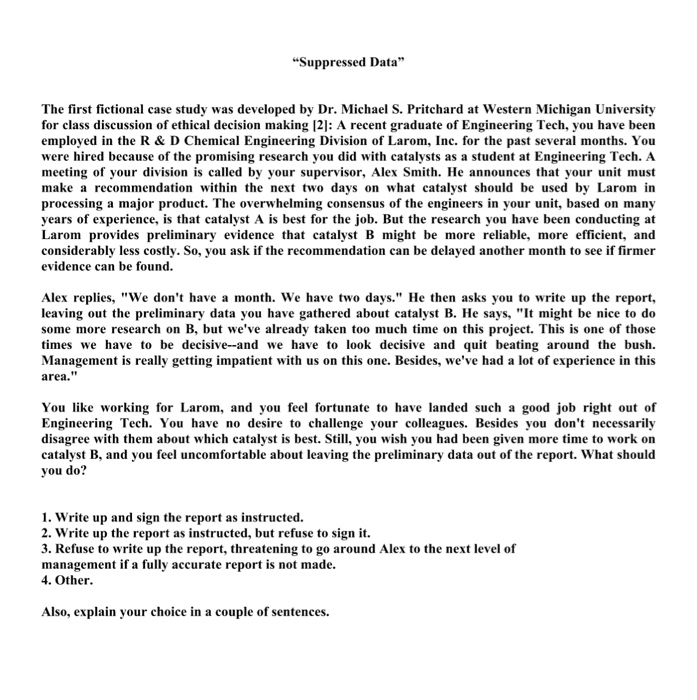The first fictional case study was developed by Dr. Michael S. Pritchard at Western Michigan University for class discussion of ethical decision making (2|: A recent graduate of Engineering Tech. you have been employed in the R & D Chemical Engineering Division of Larom, Inc. for the past several months. You were hired because of the promising research you did with catalysts as a student at Engineering Tech. A meeting of your division is called by your supervisor, Alex Smith. He announces that your unit must make a recommendation within the next two days on what catalyst should be used by Larom in processing a major product. The overwhelming consensus of the engineers in your unit, based on many years of experience, is that catalyst A is best for the job. But the research you have been conducting at Larom provides preliminary evidence that catalyst B might be more reliable, more efficient. and considerably less costly. So, you ask if the recommendation can be delayed another month to see if firmer evidence can be found. Alex replies, "We don't have a month. We have two days." He then asks you to write up the report, leaving out the preliminary data you have gathered about catalyst B. He says, "It might be nice to do some more research on B, but we've already taken too much time on this project. This is one of those times we have to be decisive-and we have to look decisive and quit beating around the bush. Management is really getting impatient with us on this one. Besides, we've had a lot of experience in this area." You like working for Larom, and you feel fortunate to have landed such a good job right out of Engineering Tech. You have no desire to challenge your colleagues. Besides you don't necessarily disagree with them about which catalyst is best. Still, you wish you had been given more time to work on catalyst B. and you feel uncomfortable about leaving the preliminary data out of the report. What should you do? 1. Write up and sign the report as instructed. 2. Write up the report as instructed, but refuse to sign it. 3. Refuse to write up the report, threatening to go around Alex to the next level of management if a fully accurate report is not made. 4. Other. Also, explain your choice in a couple of sentences







